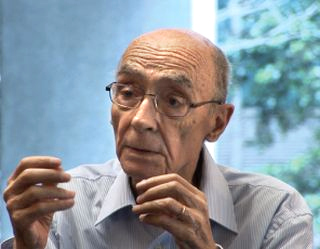цветок
Источник: афоризмы
Жозе Сарамаго знаменитые цитаты
иллюзия
Источник: романы
„Беседа больше не могла ходить кругами у черного колодца, скрывающего истину.“
колодец
Источник: романы
На обеде, данном по поводу выхода его романа «Каин».
Жозе Сарамаго: Цитаты на английском языке
“Each part in itself constitutes the whole to which it belongs.”
Источник: The Cave (2000), p. 68 (Vintage 2003)
“Inside us there is something that has no name, that something is what we are.”
Dentro de nós há uma coisa que não tem nome, essa coisa é o que somos.
Источник: Blindness (1995), p. 276
“God is the silence of the universe, and man is the cry that gives meaning to that silence.”
Deus é o silêncio do universo, e o homem o grito que dá um sentido a esse silêncio.
Lanzarote Notebooks (1990), quoted in The Notebook, entry for 9 October 2008.
“Men, forgive Him, for He knows not what He has done.”
Источник: The Gospel According to Jesus Christ (1991), p. 347; Jesus' last words from the cross.
Контексте: Jesus then realized he had been brought here under false pretences, as the lamb is led to sacrifice and that his life had been planned for death since the very beginning. Remembering the river of blood and suffering that would flow from his side and flood the entire earth, he called out to the open sky where God could be seen smiling, Men, forgive Him, for He knows not what He has done.
“Besides the conversation of women, it is dreams that keep the world in orbit.”
Источник: Baltasar and Blimunda (1982), p. 107
Контексте: Besides the conversation of women, it is dreams that keep the world in orbit. But dreams also form a diadem of moons, therefore the sky is that splendour inside a man's head, if his head is not, in fact, his own unique sky.
Intervention in the World Social Forum in Porto Alegre, February of 1992; quoted in Las leyes antidiscriminatorias en el Mercosur: Impactos de la III conferencia mundial contra el racismo, la discriminación racial, la xenofobia y las formas conexas de intolerancia, Durban, 2001: informe sobre el seminario realizado en Montevideo, 29 y 30 de abril de 2002. Published by Organizaciones Mundo Afro, 2002 163 pages.
Quoted in Evans, 2002, p. 13, as reported in Fundamentals of action research, Vol. I (2005), p. 305.
Quoted in New African (IC Magazines Limited, 2003), p. 25.
“Lord knows why they depict death with wings when death is everywhere.”
Источник: The Cave (2000), p. 112 (Vintage 2003)
“This is the stuff we're made of, half indifference and half malice.”
Источник: Blindness (1995), p. 32
Referring to his grandfather, Jerónimo Meirinho.
Nobel Lecture (1998)
“Earthenware is like people, it needs to be well treated.”
Источник: The Cave (2000), p. 21 (Vintage 2003)
Le religioni, tutte, senza eccezione, non serviranno mai per avvicinare e riconciliare gli uomini e, al contrario, sono state e continuano a essere causa di sofferenze inenarrabili, di stragi, di mostruose violenze fisiche e spirituali che costituiscono uno dei più tenebrosi capitoli della misera storia umana.
La Repubblica http://www.repubblica.it/online/mondo/saramago/saramago/saramago.html (20 September 2001)
ÉPOCA Interview (in Portuguese) http://revistaepoca.globo.com/Epoca/0,6993,EPT1061569-1666-2,00.html, São Paulo, 2005.
Todo o romance é isso, desespero, intento frustrado de que o passado não seja coisa definitivamente perdida. Só não se acabou ainda de averiguar se é o romance que impede o homem de esquecer-se ou se é a impossibilidade do esquecimento que o leva a escrever romances.
Источник: The History of the Siege of Lisbon (1989), p. 47
“Even the strongest spirits have the moments of irresistible weakness”
Источник: The Cave (2000), p. 15 (Vintage 2003)
Nobel Lecture (1998)
“Where do begin, he asked, Where you always have to begin, at the beginning”
Источник: The Cave (2000), p. 53 (Vintage 2003)
